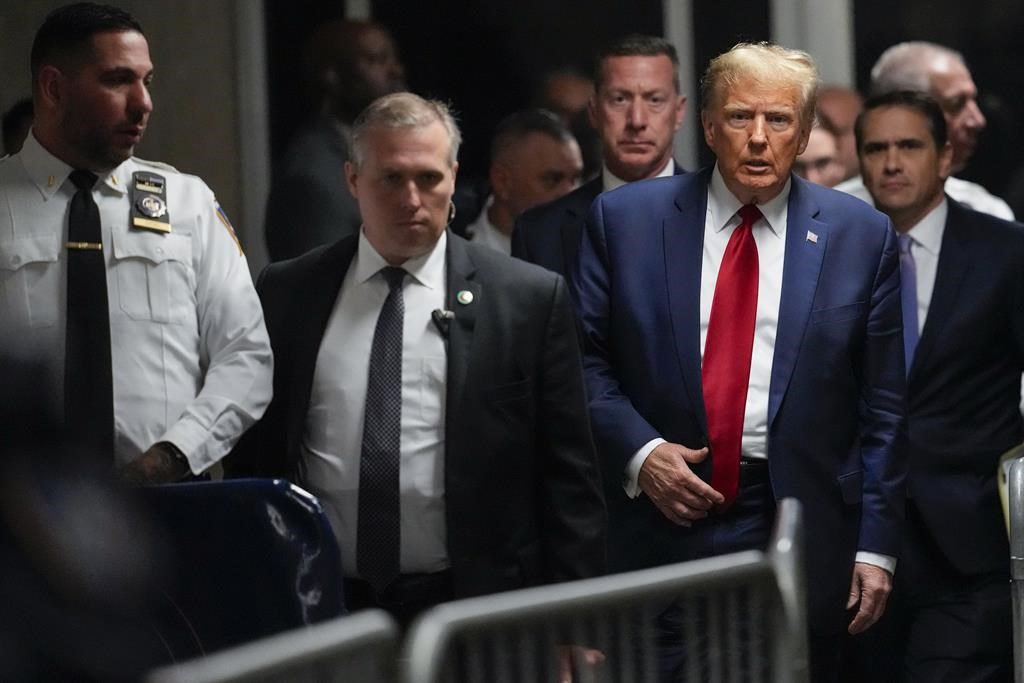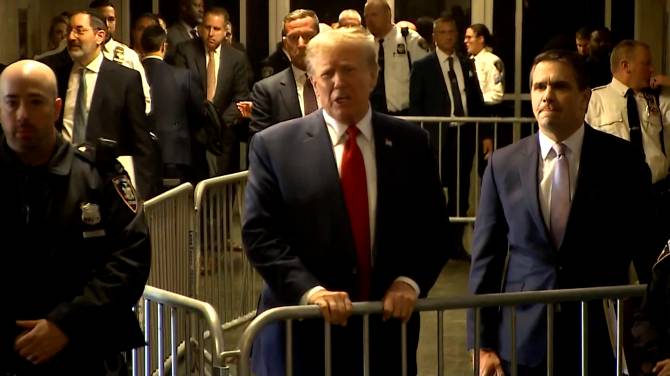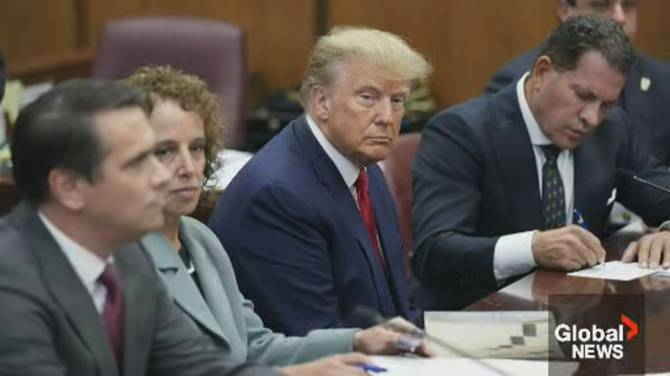Prosecutors in New York have indicated a willingness to delay the beginning of Donald Trump’s hush-money criminal trial by one month to allow the former president's legal team to review recently obtained evidence.
The Manhattan district attorney’s office is not opposed to postponing the trial for up to 30 days, but opposes a longer delay. They believe that the evidence received by Trump’s lawyers is largely unrelated to the case.
Jury selection for the hush-money trial is set for March 25. This is one of four criminal cases against Trump.
Trump’s lawyers are requesting a 90-day delay and have also asked Judge Juan Manuel Merchan to dismiss the case, alleging that the last-minute disclosures violated evidence-sharing rules. This process, known as discovery, is standard in criminal cases to ensure a fair trial.
It's not uncommon for trial delays to occur due to evidence-related issues.
Since March 4, Trump’s lawyers have received at least 84,000 pages of records from the U.S. attorney’s office, with an additional 31,000 pages on Wednesday.
The defense has also sought to postpone the trial until after the Supreme Court rules on Trump’s presidential immunity claims, which his lawyers argue could apply to some of the allegations and evidence in the hush-money case. The Supreme Court is set to hear oral arguments on April 25.
Merchan has not yet made a decision on either request.
The New York case centers on allegations that Trump altered his company’s internal records to conceal the true nature of payments to his former lawyer and fixer Michael Cohen, who assisted in burying negative stories during his 2016 presidential campaign. Cohen paid porn actress Stormy Daniels $130,000 to prevent her from sharing her claims of an extramarital encounter with Trump.
Last year, Trump pleaded not guilty to 34 felony counts of falsifying business records. He denies the encounter with Daniels and insists that the payments to Cohen were legitimate legal expenses, not part of any cover-up.
Trump has repeatedly tried to delay the start of his criminal trials.
At a pretrial hearing in New York on Feb. 15, Trump mentioned, “We want delays. Obviously I’m running for election. How can you run for election if you’re sitting in a courthouse in Manhattan all day long?”
The overwhelming amount of evidence that led to the delay request relates to a federal investigation into the hush-money matter that resulted in Cohen's imprisonment.
After serving Trump for ten years, Cohen parted ways with him in 2018 and later admitted to campaign finance violations related to the hush-money payments, making false statements on a bank loan application, evading taxes linked to his investments in the taxi industry, and lying to Congress.
Cohen spent around a year in jail before being released to home confinement due to the COVID-19 pandemic. He became a vocal enemy of Trump and is expected to be an important witness for the prosecution in the hush-money trial. Trump and his lawyers, however, have depicted Cohen as entirely untrustworthy.
Although federal prosecutors stated in their case against Cohen that the hush-money payments were made to benefit Trump and were done with his knowledge, they did not go as far as accusing Trump of directly committing a crime at that time.
The Justice Department’s Office of Legal Counsel, which gives legal advice and guidance to executive branch agencies, has maintained that a sitting president cannot be charged with a crime. The U.S. attorney in Manhattan did not reopen the investigation once Trump left the White House.





